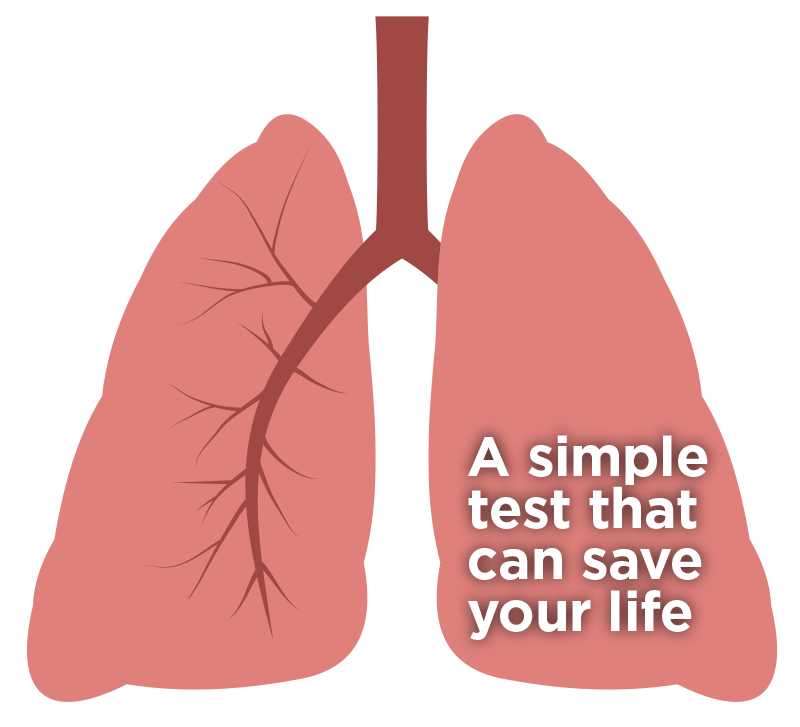Lung cancer is the leading cause of cancer death among men and women in the United States. However, the most common type, non-small cell lung cancer, can sometimes be cured if it is found early enough. Unfortunately, about 90% of people with lung cancer die from the disease. This is partly because the cancer has reached an advanced stage before it’s detected.
Anyone can develop lung cancer, but current or former smokers are at greatest risk. Early Detection has been proven to be the most effective way to beat lung cancer. The National Lung Screening Trial, sponsored by the National Cancer Institute, showed that people aged 55 to 74 with a history of heavy smoking and a high risk for developing the disease are 20% less likely to die from lung cancer if they receive a low dose CT (LDCT) lung cancer screening.
- Men and women ages 55-77 years old
- Have smoked for at least 30 pack years (pack years = number of packs smoked per day times number years smoked)
- Currently smoke or have quit less than 15 years ago
- No experience of lung cancer symptoms
To determine whether you are a candidate for lung cancer screening, you should see your doctor, who will review your medical history and advise you on the benefits, limitations and potential risks of the test.




